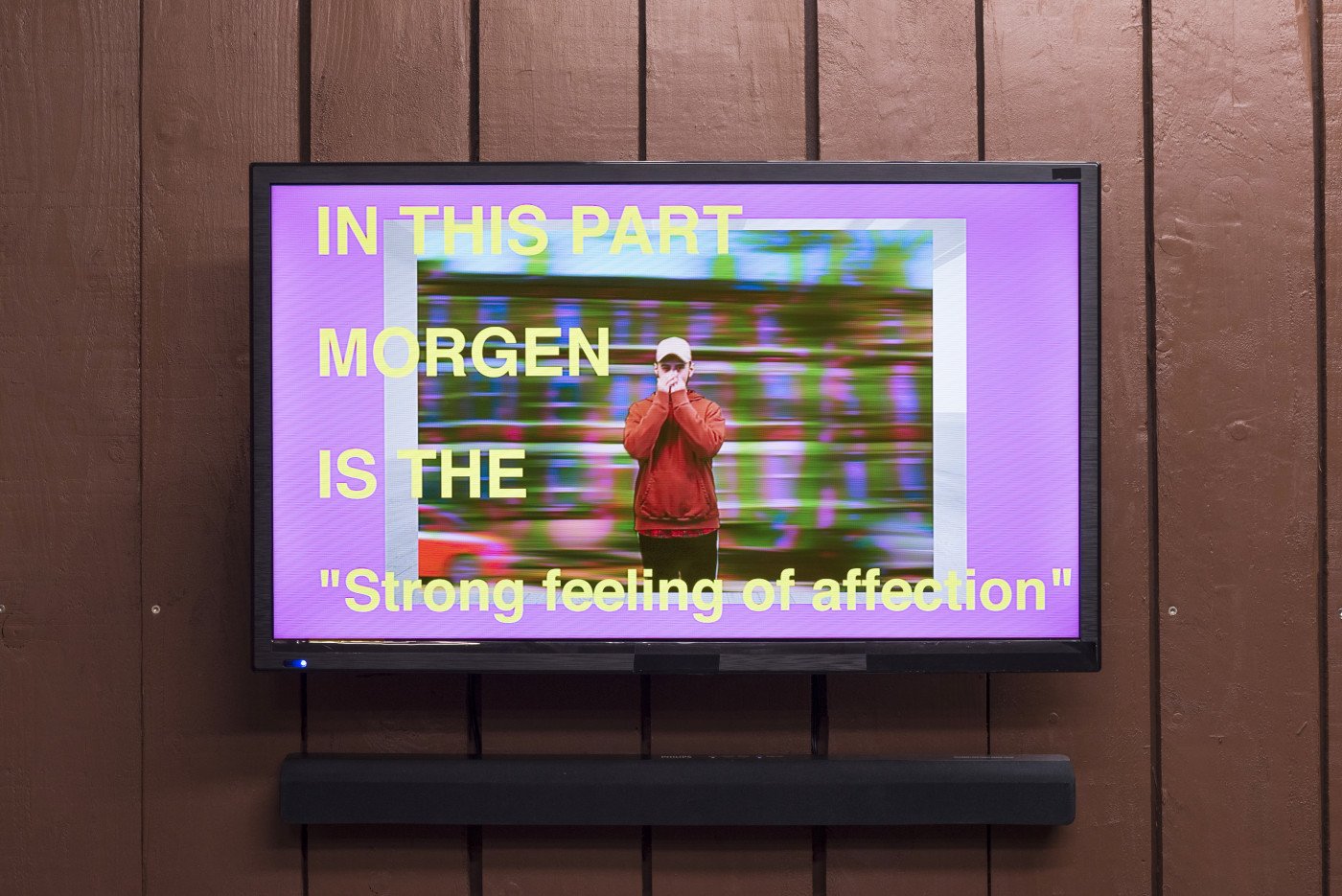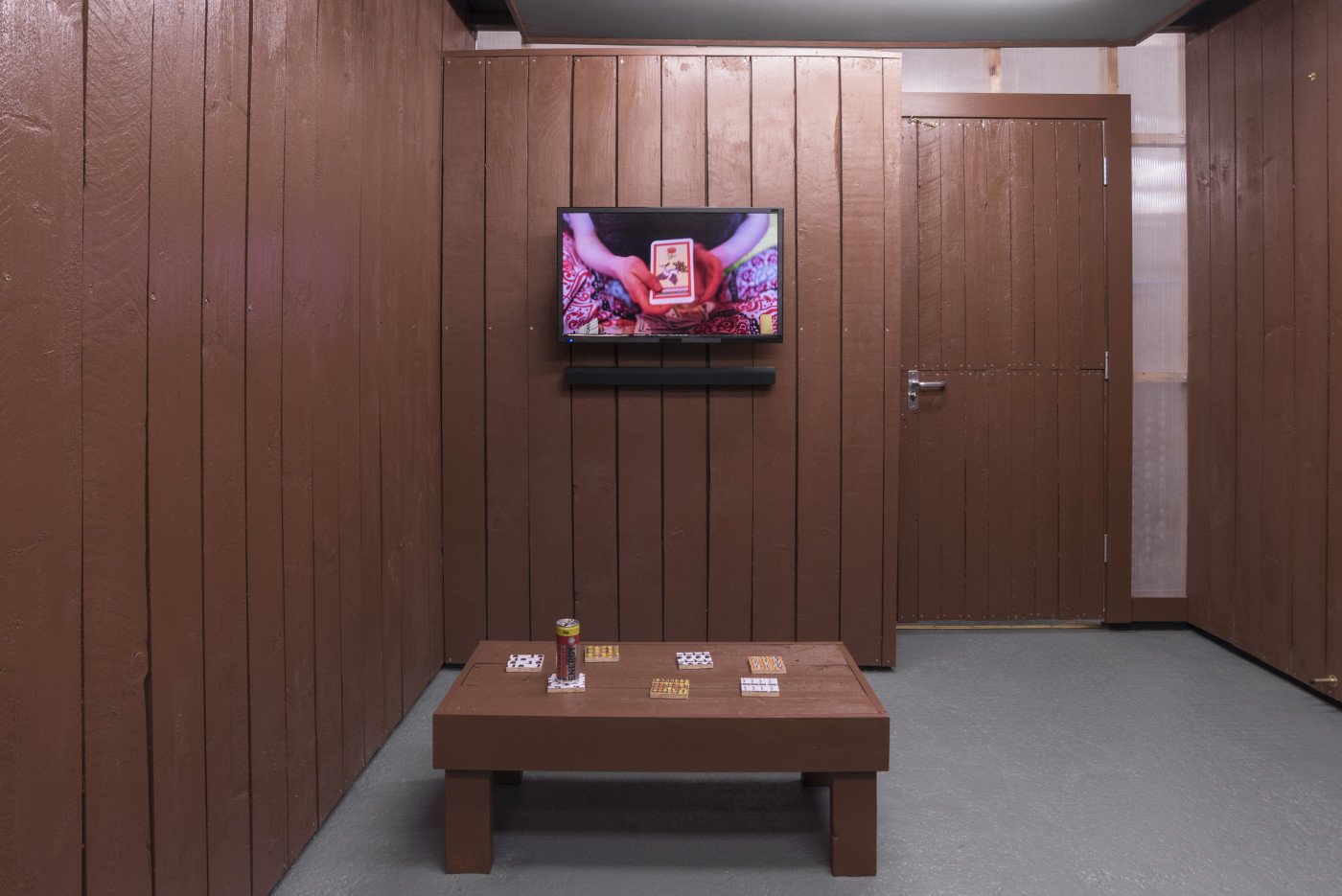
The Trophy Room, Liverpool, is currently host to ‘Watch in a Bright Room and at a Safe Distance from the TV’. Curated by Harry Meadley, the exhibition features new video works by artists Agil Abdullyev and Wendy Asumadu. Both early career, the artists collaborated previously while studying Fine Art at Nottingham Trent University.
The title of the show was inspired by the 1997 ‘Pokémon Shock’ phenomenon in Japan, when an episode featuring flickering red and blue flames caused several hundred children to experience seizures and become hospitalised. Many animes now display the instruction at their start, ‘Watch in a bright room and at a safe distance from the TV’.
Meadley saw a parallel between the ‘Pokémon Shock’ and new media artworks, which are often circulated online and viewed through the unhealthy medium of digital technology. Artists have the power to circulate their works to online audiences, but do not have control over how audiences view them. Meadley sought to present the video works in a controlled environment, using the exhibition as a space where viewers could immerse themselves in the artwork’s content.
A pivotal theme for both artists in the exhibition is identity. Abdullyev is an artist from Azerbaijan, whose work focuses on the differences between the east and the west from a queer perspective. In Morgen and My Morgen, he appears in contemplation on a reclining chair, constantly referring to the word ‘Morgen’. The word takes on new meanings in each scene, which is introduced with statements such as ‘Morgen is a deep feeling of affection’.

Although presented in a light-hearted manner, the work is tainted with a political message and dark undertone. Clips of speech about censorship and torture are woven into the film from a series of conversations between Abdullyev and a man from Azerbajan, who was imprisoned and abused after being found on Grindr by the authorities. ‘Morgen’ becomes representative of their experiences as homosexual men in two very different places.
While the meaning of Morgen and My Morgen is subtle and takes time to absorb, the video works by Asumadu reveal their intent from the start. Four works are presented, one after another, each telling a story of an individual’s exploration of their sense of self.
Asumadu is drawn to the subject of authenticity, questioning if the inner self we project is a mark of who we truly are or a construct of society and culture we were born into. In each work, she interviews an individual in their personal space, about their experiences that have contributed to who they are as a person. During the conversations she films objects around the individual’s room, which reinforces the idea that our identity is constructed by a number of external influences that we bring into our lives. The films are thoughtful and well produced, accompanied by each individual’s favourite song. A pair of headphones in the corner of the room connects both the artists and curator playing their favourite songs.
Meadley’s curatorial approach opens up a fascinating discussion around the nature of viewing new media works, which perhaps could have been unpacked a little more in the exhibition.
In the best circumstances, a gallery space offers a setting distanced from the outside world and interruptions. In small galleries like The Trophy Room, however, the works struggle against the bustle of a private view, or the necessity of an ‘open by appointment’ arrangement. The size of the room complemented the simplicity of the set-up Meadley sought to achieve, but as the sound of the works is played through speakers, it perhaps doesn’t immerse viewers to their full potential when the room is full and the noise levels high. This is more of a reflection on the difficulty of accessing new-media works, particularly when brought into in the social environment of the private view. A visit to the show would be best rewarded on a quiet day.
Open via appointment – 15.04.18 – 04.05.18.




Comments